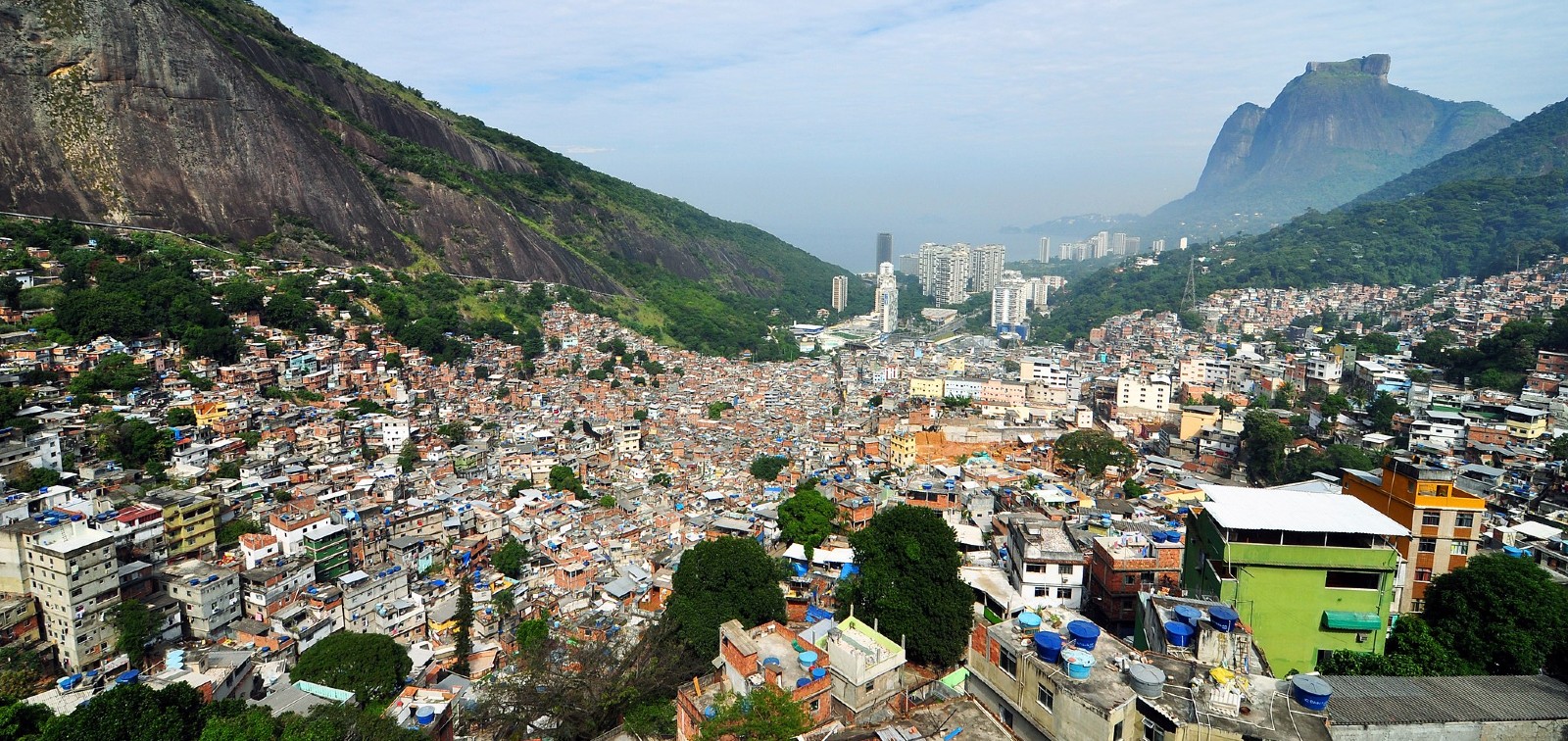The Oxford-AstraZeneca COVID-19 Vaccine is Effective in Protecting Socially Vulnerable Populations
Vaccine effectiveness was analysed in the community of Complexo da Maré, the largest group of favelas in Rio de Janeiro, at a time when the Delta and Gamma variants were predominant
04.03.2022
The Oxford-AstraZeneca vaccine is also effective in reducing symptomatic COVID-19 in a socially vulnerable community, where viral transmission is high and access to healthcare might be limited. This is the conclusion of a study performed in a group of favelas in Brazil, and co-led by ISGlobal, a centre supported by the ”la Caixa” Foundation, and the Oswaldo Cruz Foundation in Brazil (Fiocruz).
A large number of people in low- and middle-income countries live in densely populated slums or favelas, often with limited resources to respond to the stress caused by a pandemic such as COVID-19. “We know that socially vulnerable populations have been disproportionately affected by the COVID-19 pandemic – they are more exposed to the virus and are more likely to die if they get sick” says ISGlobal researcher Otavio Ranzani, “but studies estimating vaccine effectiveness in these populations are lacking,” he adds. Moreover, few studies have assessed vaccine effectiveness against the Gamma variant, which circulated mainly in Brazil and Latin America, and is able to partially escape recognition by vaccine-induced antibodies.
In this study, Ranzani and colleagues in Brazil aimed to test the effectiveness of the Oxford-AstraZeneca vaccine in a socially vulnerable population, at a time when both Delta and Gamma were the predominant variants circulating in the country. To do so, they focussed on the community of Complexo da Maré, the largest group of slums in Rio de Janeiro and one of the areas with the highest number of COVID-19 cases and deaths. Thanks to the efforts of civil society, NGOs and the local community, a free testing strategy was implemented for the 140,000 residents living in the area. In addition, a mass vaccination campaign between July and October 2021 managed to cover 93.4% of adults with two doses, an action that was led by the projects ongoing in Complexo da Maré and supported by the Secretary of Health of Rio de Janeiro.
The research team linked the community-program testing database with the vaccination campaign database to perform their analysis, which included 10,077 PCR tests (64% from symptomatic individuals, and 36% from people who had no symptoms, with an average age of 40). After adjusting for certain factors such as age, sex and comorbidities, they found that the protection against symptomatic COVID-19 was 31% after one dose and 65% after the second dose. “Our estimates are in accordance with other studies of effectiveness of this vaccine with these variants of concern, and confirm the need of administering the second dose,” says Fernando Bozza, senior author from the Oswaldo Cruz Foundation. The analysis, however, did not allow to estimate vaccine protection against severe disease. ISGlobal and Oswaldo Cruz Foundation have an ongoing memorandum of agreement and further studies are expected.
Reference
Otavio T. Ranzani, Amanda A.B. Silva, Igor T. Peres, Bianca B.P. Antunes, Thiago W. Gonzaga-da-Silva, Daniel R. Soranz, José Cerbino-Neto, Silvio Hamacher, and Fernando A. Bozza. Vaccine effectiveness of ChAdOx1 nCoV-19 against COVID-19 in a socially vulnerable community in Rio de Janeiro, Brazil: a test-negative design study. Clin Microbiol Infect. 2022 Feb 9. doi: 10.1016/j.cmi.2022.01.032



